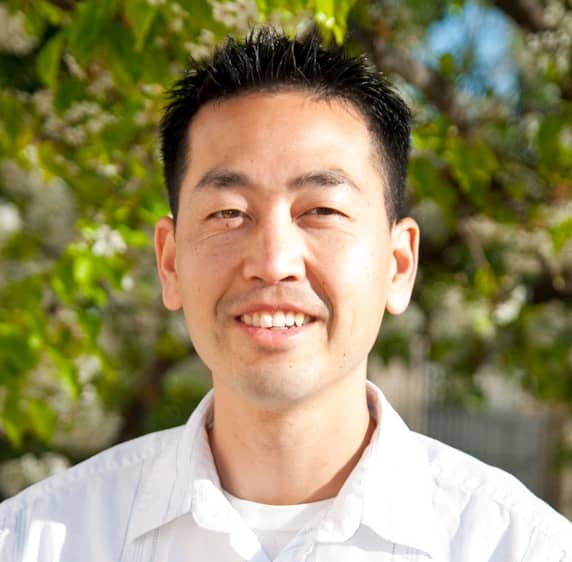
The wartime Alien Enemies Act (AEA) is a painful subject for my family. It has only been invoked several times in our nation’s history, but most notably to incarcerate 120,000 Japanese Americans during World War II (over 2/3 of whom were American citizens). Following the war, an independent government commission authorized by the U.S. Congress would conclude:
Executive Order 9066 was not justified by military necessity, and the decisions which followed from it . . . were not driven by analysis of military conditions. The broad historical causes which shaped these decisions were race prejudice, war hysteria, and a failure of political leadership. . . A grave injustice was done to American citizens and resident aliens of Japanese ancestry who, without individual review or any probative evidence against them, were excluded, removed and detained by the United States during World War II.[1]
Last month, the rarely used AEA was invoked again to deport suspected gang members and incarcerate them in an El Salvadorian prison. And on April 7, the Supreme Court effectively approved its use, while ruling that even suspected criminals must still be granted a court hearing. In addition, the Alien Registration Requirement (ARR) now requires immigrants without legal status to register with the United States federal government and to carry those papers with them at all times. Immigrants are fearful of being caught without papers, but also fearful that the government will wrongfully incarcerate them if they do not register.
The public approval of removing and incarcerating dangerous gang members has softened us to injustice against the innocent. Yet these atrocities must never happen again. The church should learn from history how we were glaringly silent when Japanese Americans were rounded up without due process and without cause.
Our main focus, as the church, however, is not to enforce immigration policy or to fear the government, but to be a positive influence as God’s hands and feet to those in need. Most importantly, we make a difference by welcoming the stranger and showing God’s love. Members in my own church and denomination, for example, offer pro-bono legal assistance and have established welcome centers to help immigrants assimilate into our country. As we make a difference, then, we also make relationships with the goal of making disciples. The acronym, PLEASE, adapted from World Relief, offers some practical ways that churches can minister to immigrants during these challenging times.
P.L.E.A.S.E. Can You Help?
First, Pray. Pray first for the immigrants themselves. Some are living in fear or guilt because of their uncertain situation. Many want more than anything else to become documented citizens, but they have no pathway to get there. All of them need to know the love of Jesus and his followers. So, pray for churches and government leaders as we try to sort through these complex issues. Then, pray for yourself to grow in much-needed wisdom, compassion, and humility.
Second, Listen. Listen to the stories of Christian immigrants you already know. Many this year have canceled summer vacations to visit family in other countries. They cannot serve on overseas mission trips because of reentry concerns. Others are afraid to come to church because immigration authorities might invade their place of worship. Sit down with them and share a meal. Before you judge, ask them to tell you their story. Discuss in your small group about each family’s personal immigration journey. Most importantly, listen to what God’s Word says about welcoming the stranger. We still have responsibilities to care for one another even within a broken system.
Next, get Educated. Evaluate different views—not just the one you favor politically. Assess these complex issues with humility, knowing that none of us completely understands them. Seek interaction with immigrants themselves and serve together with those unlike you. Attend their cultural celebrations. Visit an immigrant church. Even if you aren’t familiar with the language or the culture, you’ll learn a great deal as you worship with fellow believers from different cultures.
A is for Advocacy. Get familiar with basic immigration law. Certainly, our nation needs comprehensive reform that makes it harder for people to enter unlawfully (e.g., border patrol) or to overstay a visa (e.g., workplace enforcement), while at the same time, mapping out a pathway for lawful citizenship. It’s possible to do both at the same time. We should provide adequate visas to keep the faucet of immigration flowing, but not overflowing in such a way that it becomes unmanageable. We should strive to keep families united and to assist those seeking asylum from persecution.Comprehensive reform also seeks a pathway to citizenship for the millions already in the U.S. without legal status.[2] We need a system not based on fear, but one which honors the law while also granting mercy to immigrants. So, let’s weigh these issues wisely as we vote for leaders and encourage believers to seek careers within this field. The church must often be the voice for those who have no voice.
Don’t forget, of course, to Serve. As we love like Jesus in practical ways, we must serve those who are in need. Many immigrants want to learn English. They need authorized and affordable legal services. Some might benefit from job skills training. We can teach a Bible study, offer art classes, or tutor children with their homework. So, be creative in finding ways to serve. Imagine tens of thousands of refugees pouring into your community—many of them Christians. You will get to know them as they attend your churches. You will hear their stories and share meals together. Yet what if they need assistance that the government can’t provide? What if they are looking for a place to live or a vehicle to drive? Would you welcome them into your home? Would you be willing to sacrifice your comfort? And how might such care ministry transform our churches?
Most importantly, we must Evangelize. Opportunities abound as we can now go and make disciples without ever crossing a border. According to Southern Seminary’s president, Al Mohler, “For the first time in American history this immigration wave is touching not just the coast and not just the major cities, but much smaller areas as well. . . . Right here in the United States, right in our own towns, we’ve never faced such a Great Commission responsibility. We have never faced such a Great Commission opportunity.”[3] Yet “something is missionally malignant whenever we are willing to make great sacrifices to travel the world to reach a people group but are not willing to walk across the street.”[4]
These are some of the many ways that the church can minister to immigrants. So, let’s meet practical needs as we proclaim the gospel. Let’s make a difference and make relationships. Then, in next time, we’ll show how to make d
[1] Commission on Wartime Relocation and Internment of Citizens, Personal Justice Denied (Washington, D.C.: U.S. Government Printing Office, 1982), 18.
[2] Some suggest they pay a fee, then undergo background checks in order to be granted probationary legal status. After several years, they could be eligible for Lawful Permanent Residency if they show they are contributing to society, paying taxes, learning English and civics, and staying out of trouble. This pathway requires, however, that the government will act in good faith throughout the process.
[3] Albert Mohler, president of the Southern Baptist Theological Seminary.
[4] J. D. Payne, Pressure Points: Twelve Global Issues Shaping the Face of the Church (Nashville, TN: Thomas Nelson, 2013), 69.
4/22/2025 8:39:12 PM





